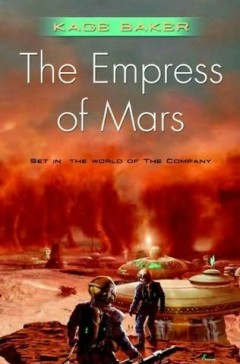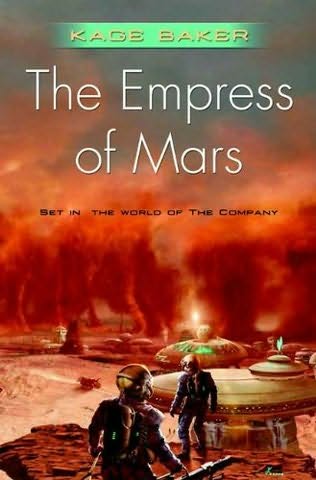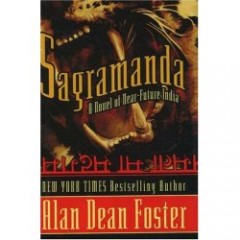Finalists for the 2011 Prometheus Award for best libertarian novel were announced just yesterday. One finalist, Ceres, by past award-winner L. Neil Smith, has already been reviewed on Prometheus Unbound. Also making the cut is Cory Doctorow’s For The Win. I have a copy of this novel and plan to review it soon, after I publish a few overdue reviews.
As a reminder to our readers, we are open to submissions of reviews (as well as news, articles, interviews). Even if you can’t contribute regularly, we’d like to have a number of part-timers on our staff who only contribute occasionally. We’re even open to one-time contributors.
So if you’d like to read and review one of the other Prometheus Award finalists, nominees, past winners, or another piece of fiction, we’d be happy to consider it for publication.
Below is the full press release from the Libertarian Futurist Society, which presents the Prometheus Award:
[continue reading…]
Help Promote Prometheus Unbound by Sharing this Post
A few years ago in honor of Arthur C. Clarke’s then-recent birthday, I wrote on my own blog that he must never have read Ludwig von Mises and Murray Rothbard,
because according to this quote cited by Gregory Benford in his happy-birthday letter in Locus Magazine (January 2008), he claims that “there are some general laws governing scientific extrapolation, as there are not (pace Marx) in the case of politics and economics.” Well, far be it from me to disagree that Marx was wrong about a lot of things, but Clarke is wrong here. Sir Clarke, you may be 90 years old now, and happy birthday by the way, but it’s never too late to acquire a firm grasp of sound economic theory.
As disappointing as it is, it’s not surprising that he had a natural-scientistic bias against economics. Sadly, he died only a few months after my post.
In a more recent article in the Sri Lanka Guardian, more of Clarke’s economic ignorance is on display:
While researching for this article I came across a searing indictment by Clarke on the American capitalist system. After observing that the structure of American society may be unfitted for the effort that the conquest of space demands he continued, “No nation can afford to divert its ablest men into essentially non-creative and occasionally parasitic occupations such as law, insurance and banking”. He also referred to a photograph in Life Magazine showing 7,000 engineers massed behind a new model car they had produced as ‘a horrifying social document’. He was appalled by the squandering of technical manpower it represented. All this indeed makes one wonder whether he really was a closet socialist.
[continue reading…]
Help Promote Prometheus Unbound by Sharing this Post

 The Empress of Mars
The Empress of Mars
By Kage Baker
Trade paperback, 304 pages
Tor (2009), $10.87
The Empress of Mars was written by the late Kage Baker (June 10, 1952 — January 31, 2010; 1st name pronounced like ‘cage’). It started out as a novella (Asimov’s Science Fiction Magazine July 2003), which won the 2004 Theodore Sturgeon Award and was nominated for a Hugo Award and a Nebula Award, but was later expanded into the full-length novel published in 2009 that I review here.
The Empress of Mars is not Martian royalty. This is not Barsoom, the Mars of Edgar Rice Burroughs. You won’t find a John Carter-type hero fighting native Martians and rescuing princesses within these pages, though Baker does pay homage to Burroughs’ Mars tales. Tars Tarkas makes an appearance as the Martian Santa Claus, for example.
No, The Empress of Mars is a restaurant and bar owned by one Mary Griffith, an early settler of Mars and former biological scientist. A tough, motherly figure, Mary Griffith embodies the rugged individualism and pioneer spirit that pervades Baker’s The Empress of Mars. Baker’s tale is more scientifically literate than Burroughs’, and qualifies (mostly at least, see below) as hard science fiction, leavened with superior writing and humor. It is set some unspecified time after the year 2186 — marking a past event, the year the Kutuzov expedition discovered Olympus Mons is not an extinct shield volcano, it was the only date I recall seeing in the novel.
The story revolves around Mary, her three daughters, and a host of other quirky characters, some of whom she takes under her wing, others she befriends or does business with, as they deal with at first neglect by and then interference from the bureaucrats of the British Arean Company (BAC).
[continue reading…]
Help Promote Prometheus Unbound by Sharing this Post

This is the second of two book/movie reviews I had published in the Fall 2007 issue of Prometheus, the quarterly newsletter of the Libertarian Futurist Society.
Sagramanda: A Novel of Near-Future India
By Alan Dean Foster
Hardcover, 287 pages
Pyr/Prometheus Books, 2006, $25.00
Alan Dean Foster’s Sagramanda is a far better novel than his Transformers [see my review]. While not especially libertarian, it is also far more so than his Transformers. Sagramanda is a science fiction techno-thriller set in the near-future Indian city of the novel’s title. In this, Foster’s novel follows in the footsteps of Ian MacDonald’s River of Gods and MacDonald indeed has a blurb on the back cover in praise of Foster’s novel and remarking on “the growing swell of writers realizing we may be living in the Indian Century.” As far as I can tell Foster does a good job of capturing the spirit and atmosphere of India. (My wife is Indian but she was unable to read the novel before the deadline for this issue.)
[continue reading…]
Help Promote Prometheus Unbound by Sharing this Post











